Physics
Sign up for our newsletter
We summarize the week's scientific breakthroughs every Thursday.
-
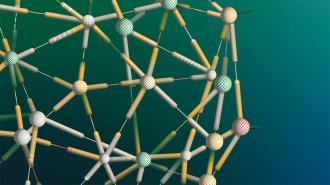 Artificial Intelligence
Artificial IntelligenceA quantum trick helps trim bloated AI models
Machine learning techniques that make use of tensor networks could manipulate data more efficiently and help open the black box of AI models.
-
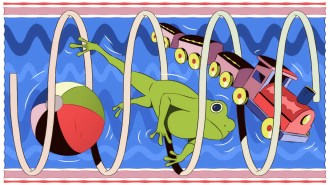 Physics
PhysicsHow to levitate objects sans magic
It’s possible to defy gravity using sound waves, magnets or electricity, but today’s methods can’t hoist heavy items high in the sky.
-
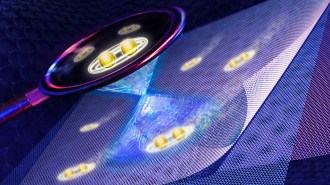 Physics
PhysicsTwisted stacks of 2-D carbon act like a weird type of superconductor
“Magic-angle” graphene may provide new clues into poorly understood unconventional superconductors, which operate at higher-than-normal temperatures.
-
 Physics
PhysicsHere’s how Rudolph’s light-up nose might be possible
Simple chemistry could give the reindeer his famously bright snout. But physics would make it look different colors from the ground.
-
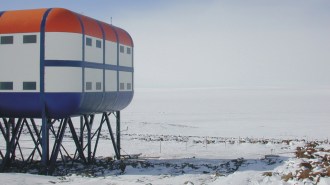 Science & Society
Science & SocietyIf another country tested nuclear weapons, here’s how we’d know
President Trump has argued the U.S. should test nuclear weapons because other countries are doing it. But scientific data suggest they’re not.
-
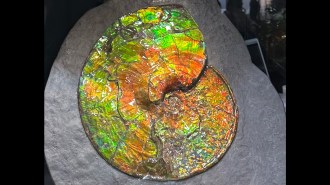 Materials Science
Materials ScienceWhat causes the rainbow shimmer of ammolite gems?
Ammolite gems’ fabulous colors arise from delicate assemblies of crystal plates.
-
 Physics
PhysicsWater jets may break up into droplets thanks to jiggling molecules
Streams of liquid form drops thanks to unidentified disturbances. It could be the jiggling of individual molecules.
- Physics
There’s math behind this maddening golf mishap
Math and physics explain the anguish of a golf ball that zings around the rim of the hole instead of falling in.
-
 Space
SpaceBlack holes are encircled by thin rings of light. This physicist wants to see one
Theoretical physicist Alex Lupsasca is pushing for a space telescope to glimpse the thin ring of light that is thought to surround every black hole.
- Physics
These simple knife tricks stop onion tears instantly
With a high-speed camera and a tiny guillotine, scientists showed that chopping onions slowly and with sharper knives cuts down on tears.
By Carly Kay -
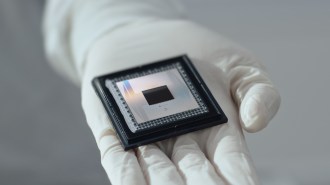 Quantum Physics
Quantum PhysicsQuantum ‘echoes’ reveal the potential of Google’s quantum computer
Google says its quantum computer achieved a verifiable calculation that classic computers cannot. The work could point to future applications.
- Physics
A tiny, levitated glass sphere behaves like the hottest engine ever made
At an effective temperature of 13 million kelvins, the jiggling glass sphere could help scientists understand physics at the microscale.